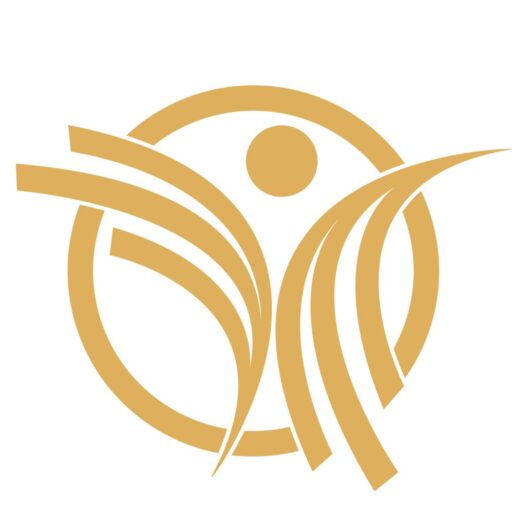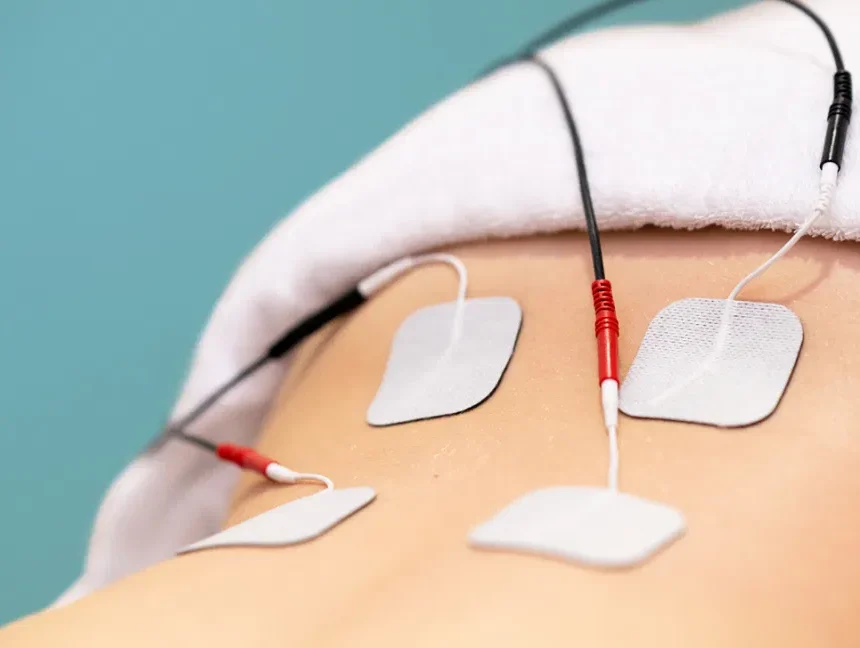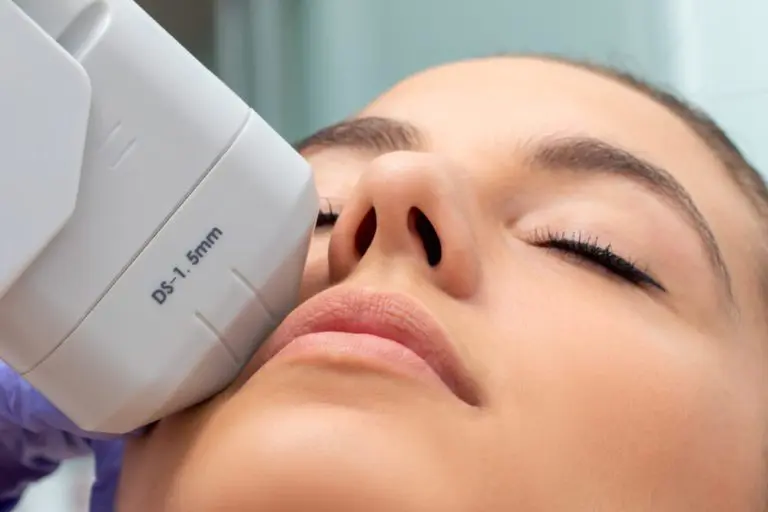Minor Injury Care
Rama Care will help you understand essential tips for managing minor injuries at home. From cuts and bruises to sprains and burns, understand the best practices to promote healing and prevent complications.
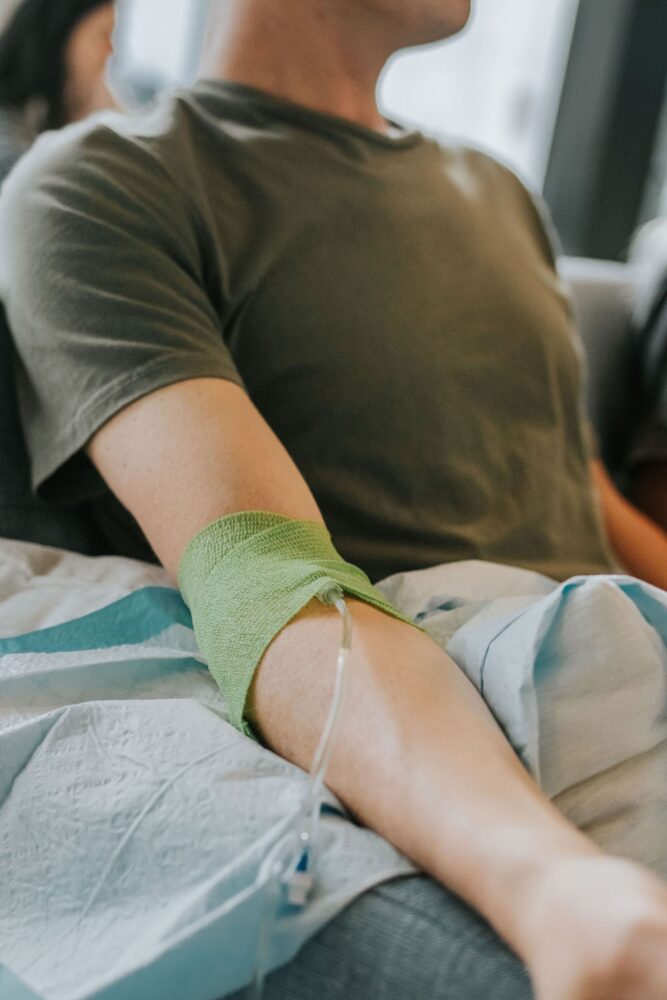
Identifying Minor Injuries
While minor injuries are not fatal most of the time, they can be painful and take a turn for the worse if not treated. This process is half of the battle, as recognizing them is the first step towards treatment.
Common types of minor injuries include:
- Cuts and Scrapes: These injuries are partial-thickness injuries since they open the skin and usually cause bleeding. They can just be minor scratches as well as deep cuts.
- Bruises: Bruises are solitary because they result from trauma to the small blood vessels that are located beneath the skin without the formation of an open wound.
- Burns: These vary from slightly severe first-degree burn which only involves the epidermis to moderately severe second-degree burn which involves damaging the epidermis and part of the dermis, with the formation of a blister.
- Sprains: Like in the case of a sprain, strain is the injury usually resulting from twist or pull factors and involves the ligaments mostly in the ankle, wrist as well as knee areas.
- Strains: Such aches refer to damage to muscle fibers or tendons, fibrous strings that connect muscles to bones; such injuries are usually a result of fatigue or the wrong method of lifting something.
We Provide All Types Of General Physician
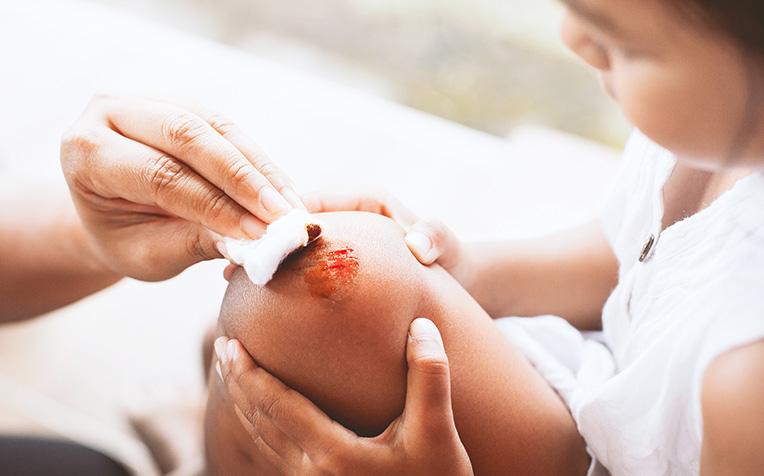
First Aid Techniques For Minor Injuries
Minor injuries that are not treated by first aid result in complications and may result in one’s death.
Here’s how to handle the most common minor injuries:
- Cuts and Scrapes: Wash with clean water and wash around the wound with soap using a piece of clean cloth. Do not rub or put soap directly into the said wound. Press with a bandage or a clean cloth gently to stop the blood flow and then apply a sterile dressing.
- Bruises: Place the ice pack over the area of the impact and keep it there for about half an hour then remove it after one hour and place it again for 15-20 minutes to decrease in swelling and pain. In case the injured part is the lower part of the body such as the leg: If you can, then raise the part that is painful in order to decrease the swelling.
- Burns: Immerse the burn or the affected part in cool (not cold) water or put a clean, wet cloth on it until the pain subsides. After that, gently cover the wound with a sterile, non-adhesive type of medical bandage. Do not prick or pop blisters as they are intended to protect the area from bacterial and fungal invaders.
- Sprains and Strains: Treat with the RICE technique; Rest, Ice, Compression, and Elevation. It is advised to keep the injured part of the body aside, apply ice on it to lessen the inflammation, bandage it, and keep the item raised above heart level in order to avoid inflammation.
Make An Appointment
When Should You Seek Professional Help?
While many minor injuries can be managed at home, certain situations warrant professional medical attention to avoid complications:
Severe or Uncontrolled Bleeding
If bleeding does not stop after 10-15 min of pressure on the wound or it is deep it may need stitches.
Signs of Infection:
Warmth, redness, swelling, or pus formation around the area of injury are signs of infection and one needs the assistance of a doctor.
Functional Impairment
If the injury hinders the use of a limb or the whole body for example by preventing the use of a specific limb due to a sprain involving extreme pain or inability to walk, then professional help is required.
Suspected Broken Bones or Dislocations
None of these ailments can be adequately diagnosed and treated by any other health care professional apart from a doctor.
Large or Deep Burns:
If you have a burn that is larger than your palm or if the wound is deeper you should seek medical attention.
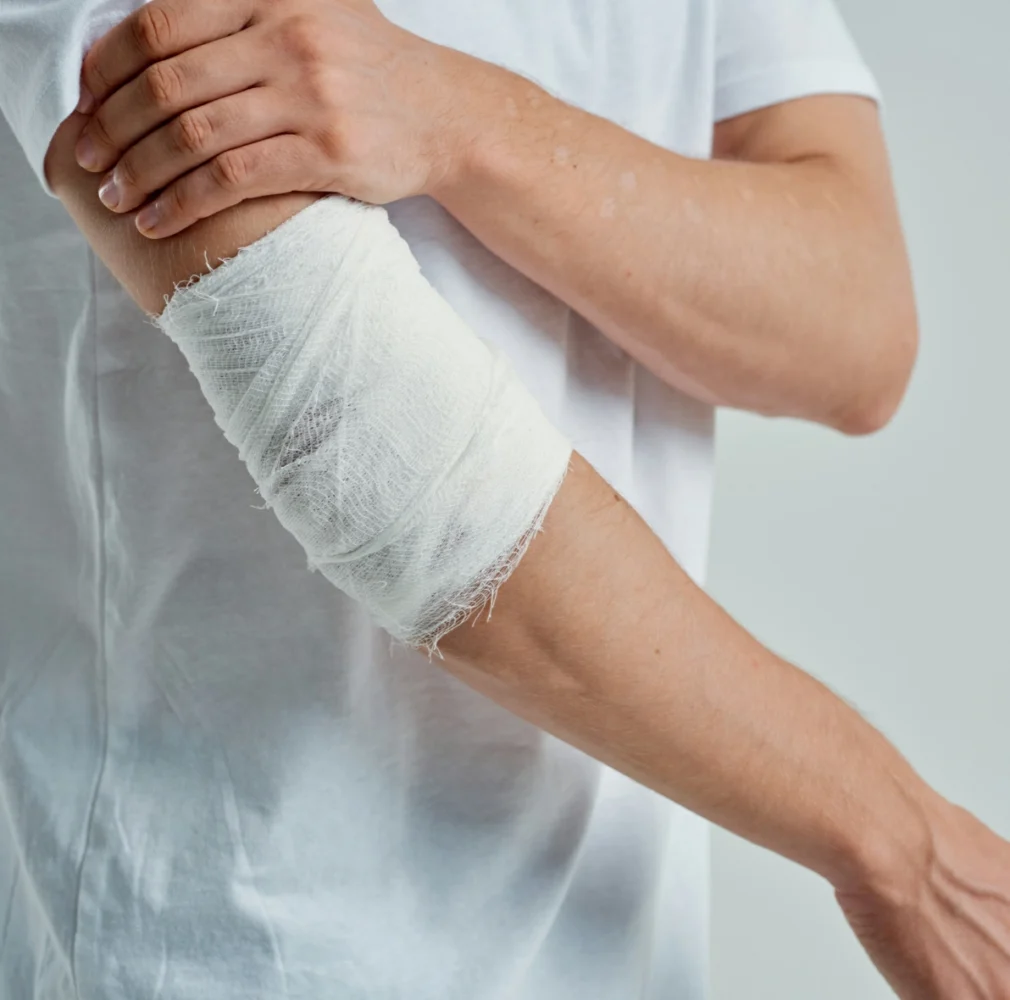
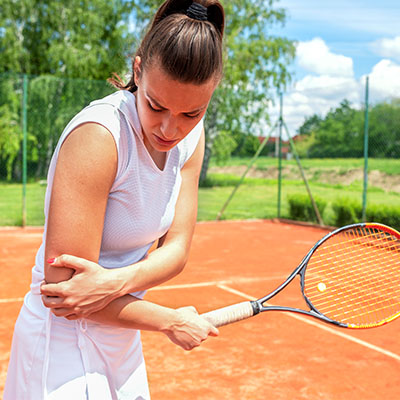
Preventing Infection and Promoting Healing
Proper care doesn't end with initial treatment. Preventing infection and promoting healing is pivotal, especially in the days following an injury:
- Keep the Injury Clean: Infection may be a considerable concern; therefore, replace bandages and apply more antibiotic cream periodically. Touched the injured site with unwashed hands or hands that have come into contact with other people.
- Monitor for Infection: Pain, inflammation, heat, and pus should be checked regularly as these are signs of infection. Fever is another of the symptoms of infection.
- Nutrition and Hydration: Consumption of foods with vitamins and minerals is important in the repair mechanism of the body. Protein is essential as well as vitamin C and zinc for the body to pull through and assist in the healing process.
- Rest: Take time to allow the injury to be fully healed especially in cases to do with sprains and strains. Any attempt at implementing a return-to-play program necessitates a structured procedure to follow when a player eases into practice to prevent re-injury of the affected limb.

Make sure to consult a healthcare specialist if the healing burn is bigger than the palm, the face, the hands, the groin, or the joints, infected and visibly swollen with pus, a chemical, or an electrical burn.
The prescribed medications may include the non-steroidal anti-inflammatory drugs or Acetaminophen.
Activity should be avoided with the painful area; elevation of the part should be done, as well as the application of ice packs to minimize inflammation.
Apply ice in the initial 48 hours if there is white blood cell gathering at the site of the injury, say a sprain or bruise.
Finally, after 48 hours, one should opt for heat since it assists in the increase of blood flow to the affected area and aids amongst other things, the relaxation of tissues.
Rinse the wound under lukewarm running water and gently clean it with soap. Dry the area and apply an antibiotic ointment to prevent infection. Cover with a sterile bandage, changing it daily or when it becomes wet or dirty.
Hear From Our Clients
EXCELLENTTrustindex verifies that the original source of the review is Google. "I recently visited Rama Care Poly Clinic, and I had a very positive experience. The staff was friendly, professional, and attentive, making me feel comfortable from the moment I walked in. The doctors were knowledgeable and took the time to explain my treatment options thoroughly, which I really appreciated. The clinic was also clean and well-maintained, which added to the overall sense of care and professionalism. I would definitely recommend Rama Care Poly Clinic to anyone looking for quality healthcare services. Thank you to the team for a great experience!"Trustindex verifies that the original source of the review is Google. I had the best Treatment today for my Laser and pain-free and I also had my Ayurvedic Treatment. Thanks Rama Car for the services and taking good care..Trustindex verifies that the original source of the review is Google. All the staff was friendly, the are professional, Therapist know what is my concern, they know what is the next treatment I should do, they also advice for home care. My treatment was Ayurvedic massage and HydraFacial. All of them is amazing. They have many kind services . Place very easy to find. Thank you Rama care clinic, I will recommended . ❤Trustindex verifies that the original source of the review is Google. I was impressed with the service of the clinic. All the reception and therapists were lovely and kind. Sonita gave me advice on what I needed. She is knowledgeable and professional.Thank you so much. Recommend Rama Clinic.Trustindex verifies that the original source of the review is Google. Had an amazing session with the beauty therapist Mrs. Sonitha! I've seen noticeable improvements in my skin. She is incredibly skilled, dedicated, and attentive. And also , all the staffs are very friendly Be it doctors , therapists , receptionists- everyone out there give that ‘home’ feeling Highly recommend !Trustindex verifies that the original source of the review is Google. Very friendly staffs and therapist are very professional.Shout to Sonita for doing my facial very happy with the result. Definitely coming back to try there other treatments ❤️Trustindex verifies that the original source of the review is Google. "I had such a wonderful experience here! The staff is incredibly friendly and welcoming, making me feel right at home from the moment I walked in. The cozy environment adds to the overall relaxing vibe, perfect for unwinding. A special shoutout to Ate Sonita, who went above and beyond in taking care of me. She’s truly such a caring and thoughtful employee, ensuring that every detail was perfect. I highly recommend this place for anyone looking for excellent service and a warm, inviting atmosphere!"Trustindex verifies that the original source of the review is Google. Friendly and Professional Staff!! Love Dr Sadia!! Not only that, Ayurveda treatment I got was very good, reduced my shoulder and neck pain dramatically. Highly recommend!Trustindex verifies that the original source of the review is Google. I highly recommend Rama Care Polyclinic. I got the Dental, Ayurveda and Facial treatments and I am very satisfied with their services. High five to all the Doctors and staff as I had a pleasant and amazing experience with them.
Stay Updated With Our Latest News And Blog Articles
- By: admin
- June 4, 2024
- No Comments
Is Electrotherapy Safe During Pregnancy?
- By: admin
- June 4, 2024
- No Comments
Shockwave Therapy vs Electrotherapy
- By: admin
- June 10, 2024
- No Comments
